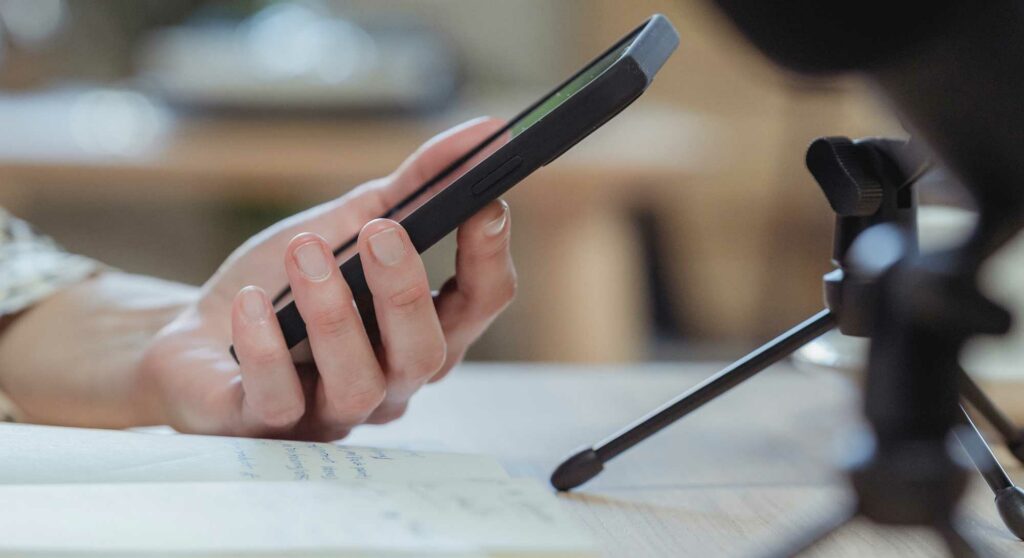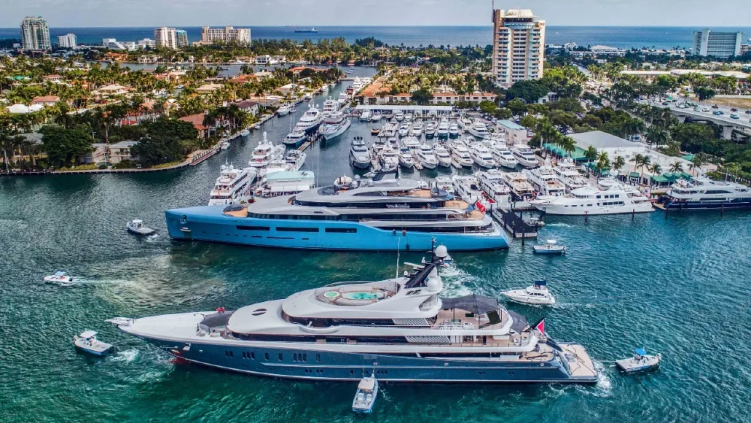
In early September, I published an article on LinkedIn, sharing best practices for organizing press events during yacht shows. It contained several do and don’t tips based on my own experiences as well as those of fellow exasperated editors. We shake our heads year after year at last-minute invitations, press conferences that run too long, and a general expectation that a cocktail party masquerading as a press event makes it worth covering. Days later, I received a direct message from a fellow yachting industry professional who I had never met, thanking me and saying, “You’ve gone viral.” Apparently my article was making the rounds among marketing and public relations reps in the industry. The analytics on LinkedIn revealed the rounds were fast and furious, too: more than 1,000 views in one week.
As I write this today, that same post has earned more than 8,000 impressions and 42 comments. I’m republishing it here, in cae you missed it. If you’re a marketing executive, it doesn’t matter what industry you’re in; take this advice to heart:
“As an editor, I’m afraid the days are gone when media can attend events and just swan around being dazzled by free exotic cocktails. If I send someone to an event, then they have to come back with meaningful content—preferably that no one else has—it’s as simple as that. We want useful info and need it to be editorially interesting (which doesn’t always match what the client wants to promote). We want to interview senior knowledgeable people, and they must expect questions beyond whatever it is the event is about. We need hi-res images from the event—especially of those interviewees—asap afterwards too.
“In summary, if you want media there, your first thought must be ‘how are they going to justify their time to their editor…?’”
If I ever meet Andrew Davies, who shared these thoughts here on LinkedIn—and, notably, isn’t in the yachting industry—I’m going to shake his hand vigorously and say, “Nailed it.”
Andrew’s commentary appeared in my LinkedIn feed last week, coincidentally when I first sat down to write this. For the past few years, I’ve noticed a trend come boat-show season. The number of press conferences is rising dramatically, yet some are more like thinly veiled cocktail parties (or lunches and breakfasts), lacking editorial substance. Since boat-show season is upon us, the issues are about to come front and center once again.
I’m in good company with this frustration, a soft of club where none of us want to be card-carrying members. A few fellow yachting editors shared their annoyance with me during a show last year, all of us agreeing that it was all the more exasperating because the issue is so simple to avoid. We also talked about other press-conference issues, again finding common ground. So, based on those conversations as well as my own experiences, here’s advice for those of you inviting us to your press events.
- Do send event details well in advance. A few exhibitors hosting press conferences at this month’s Monaco Yacht Show sent “save the date” emails in July. More sent full RSVP requests in August. As the old saying goes, the early bird catches the worm.
- Don’t expect a big media crowd if you schedule a press conference the day before the show opens. It’s nothing personal. Rather, it’s a reflection of us being a multi-national group. Some of us will still be in the air when you’re planning to step up to the microphone. Still others won’t arrive until day one of the show, even with the luxury of a commute via train or car, because of obligations in the office.
- Do feel welcome to call or email us before you schedule your press event to check if other companies already announced their own press conferences for the same time. We’ll gladly share what we know. The same is true of the show organizers’ media teams.
- Don’t schedule hours-long press conferences in the late afternoon or early evening. We’ve been on the go and on our feet since the early morning, and all week. We are exhausted. (I’ve gently nudged fellow friendly editors to wake them up.) Plus, we have client dinners and our own corporate events to shower and change for, too. Keep it simple, and keep it to an hour or less.
- Do send a full press release and multiple good images specific to your announcement immediately following the press conference. This way, those of us at the show can write meaningful articles at our earliest convenience, or assign stories to editors back in the home office.
- Don’t hold a press event unless you have something new—truly new—to share. One prominent yacht company has for the past two years devoted most of its press conferences to information revealed months prior. I recommend the 75-25 rule: at least 75 percent of the press conference should focus on never-before-discussed details.
- Do understand that some of us won’t be able to make your press event. The days of every media company sending full editorial staffs to boat shows are long gone. Between end-of-year budget tightening and, as Andrew Davies said, the need to justify the time, sometimes we’re one-person bands. Off the top of my head, about a dozen major outlets send one or two editors/writers. Considering there are more press conferences every year, sometimes back-to-back at opposite ends of the show, schedules are challenging. Again, it’s not personal. I feel the need to repeat this, since a major builder became quite cross with me for not attending their event a few years ago. I chided them (as gently as I could at the end of a long day) for failing to realize they’re not the only exhibitor.
- Don’t schedule press conferences off site during show hours unless it’s absolutely, positively necessary. Pre- and post-show hours are fine, since we have time to make our way over to the hotel or conference center. However, once the show opens, sites just a few minutes’ walk from a main entrance are never “just” a few minutes. Oftentimes, we have another press event, client meeting, or onboard tour within the show immediately before or after your event. Sometimes it’s both, and sometimes they’re at far ends of the show. We don’t want to be late for any of you, and we don’t want to cut any of you short, so when push comes to shove, appointments within the show tend to win out.
- Do ply us with water and coffee at press events during the day. There’s no such thing as too much of either.
- Don’t be late. Barring unforseen and unavoidable delays, start your press conference on time, and end it on time. Few things are as frustrating as having to walk out the door before you get to the vital details.

